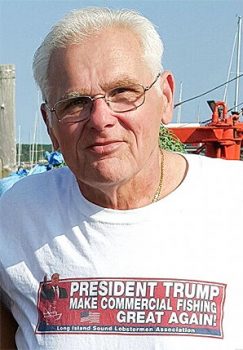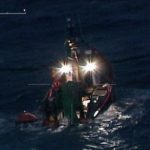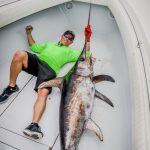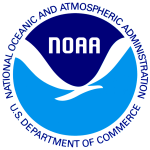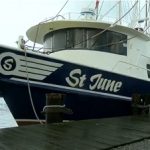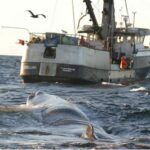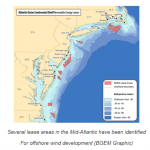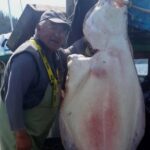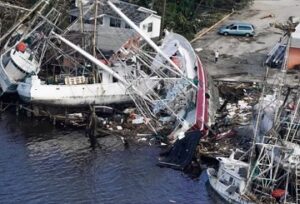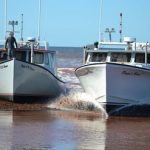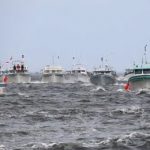Tag Archives: Atlantic States Marine Fisheries Commission
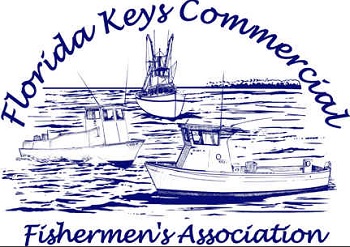
CARES Act Stimulus: Funding process for Florida Keys fishermen slowly unfolds
Both commercial and for-hire fishermen in the Florida Keys hit hard by the economic shutdown spurred by the novel coronavirus may apply to receive a portion of $23.6 million allocated to the state through the CARES Act Stimulus. Of the $300 million slugged for federal fisheries’ assistance, Florida is to receive about 12.7%, or the fourth largest share behind Alaska, Washington and Massachusetts. While Capt. Bill Kelly, executive director of the Florida Keys Commercial Fishermen’s Association, says the Keys fisheries have been slighted, he remains optimistic about the upcoming lobster season. NOAA will administer the funds through the interstate marine fisheries arms. For here, that’s the Atlantic States Marine Fisheries Commission, which will, in turn, contact the Florida Fish and Wildlife Conservation Commission to identify and establish a plan for fishermen to apply for funds. >click to read< 11:44
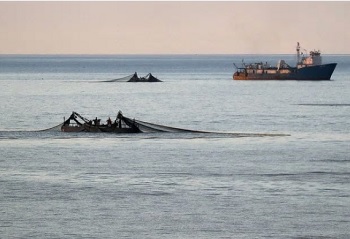
Chesapeake Bay’s menhaden catch cut drastically, along with Omega Protein quota
Virginia is cutting this year’s Chesapeake Bay menhaden catch by more than 80% from last year’s landings in order to end a federal moratorium.
Federal fisheries officials said they’d bar fishing for menhaden in the Bay this year — as long as the fish were headed for Omega Protein’s fish oil and fishmeal plant in Reedville — because the state had not enacted a 41.5% cut to 51,000 tons in Omega’s quota, which had been imposed by the Atlantic States Marine Fisheries Commission in 2017. But the Atlantic States commission has not found that menhaden were overfished. “To be perfectly clear, there is no conservation basis for the Chesapeake Bay cap. No scientific methodology was used in setting the Chesapeake Bay cap by the ASMFC, ,,, >click to read< 15:35

Court Finds American Lobster Fishery Requires Incidental Take Statement for Impacts on North Atlantic Right Whale
As commercial fisheries across the United States continue to adjust operations in the face of new legal requirements, such as the shift from single-species to ecosystem-based management, one challenge in particular has dominated the courts: the Endangered Species Act (ESA). Recent court decisions have vacated commercial longline fishing permits in federal waters off the coast of California that could endanger the Pacific leatherback sea turtle and restored prohibitions on gillnet fishing gear in a known New England feeding ground for the endangered North Atlantic right whale. This trend continued on April 9, when a federal district court judge in Center for Biological Diversity,,,The American lobster fishery is managed cooperatively by the Atlantic States Marine Fisheries Commission and NMFS, >click to read< 14:45
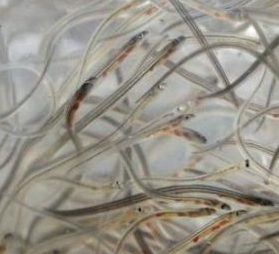
Coronavirus affecting Maine fisheries
As of early Wednesday morning, the Maine Center for Disease Control and Prevention had yet to report a single confirmed or presumed case of COVID-19, the respiratory infection caused by the coronavirus, in eastern Maine, but the lobster industry is already feeling the impacts of the global pandemic. “The market is really poor,” Stonington lobsterman Hilton Turner said Tuesday afternoon.,, The uncertainties arising from the coronavirus will likely affect other fisheries. The state’s elver fishing season opens on Sunday, and virtually the entire harvest is shipped to buyers in China. >click to read< 10:19
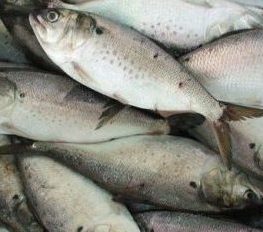
Science Center for Marine Fisheries Releases Evaluation and Summary of Latest Atlantic Menhaden Assessments
Dr. Steve Cadrin, Professor at the School for Marine Science and Technology at the University of Massachusetts Dartmouth and past President of the American Institute of Fishery Research Biologists, has completed an evaluation and summary of the latest Southeast Data, Assessment, and Review (SEDAR) Atlantic menhaden stock assessments. >click to read< 15:58
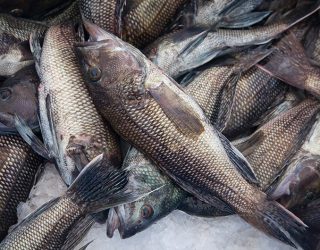
Summer founder, sea bass and scup are on the docket for upcoming public hearings focused on allocation percentages
The Mid-Atlantic Fishery Management Council (Council) and the Atlantic States Marine Fisheries Commission (Commission) have scheduled a series of scoping hearings to gather public input on the range of issues and information to be considered in the Summer Flounder, Scup, and Black Sea Bass Commercial/Recreational Allocation Amendment. Hearings will be held February 13 – March 3. Written comments will be accepted through March 17, 2020. All comments provided at public hearings or in writing will be presented to the Council and Commission. Lots of info, >click to read< 14:03
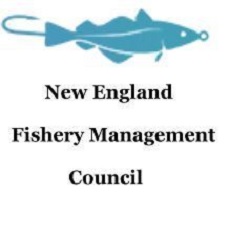
NOAA Announces 2020 At-Sea Monitoring Coverage Levels for Groundfish Sector Fishery
NOAA announces that for fishing year 2020, the total target at-sea monitoring coverage level is 40 percent of all groundfish sector trips subject to the at-sea monitoring program. For more information, please read our letter to the New England Fishery Management Council and the Summary of Analysis Conducted to Determine At-Sea Monitoring Requirements for Multispecies Sectors FY 2020. >click to read< 15:27

Maine DMR wants to close the pogy fishery to newcomers for 2 years while it crafts a new FMP/Enforcement plan.
“Closing fisheries is kind of a radical step and a dangerous step because it eliminates diversity,” said Commissioner Pat Keliher. “We’re not saying close it in perpetuity. Close it to see if there is a different approach here that would allow us to get both enforcement and reporting back under control.” Keliher said the 2019 menhaden season was challenging because of “a perfect storm of circumstances.” A sharp reduction in the herring quota spurred huge growth in the menhaden fleet, with 50 new boats rushing to satisfy the $485 million lobster industry’s need for substitute bait. >click to read< 07:23
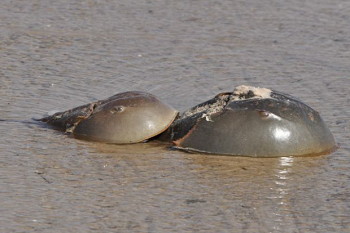
Concerns over horseshoe crabs spur discussion about limiting harvest
When Long Island beaches come alive at high tide with hundreds of thousands of horseshoe crabs, looking to spawn under the spring and summer moons, it’s also time for many fishermen who track those cycles to harvest the arthropods at their most plentiful. Most use their catch for bait, but some sell them to markets, where they are shipped either for other fishermen’s purposes or medical uses.,, Jamie Hummel, who fishes from Hampton Bays, said baymen like him take only their limit, and need only enough to keep their conch pots baited through the year. He said if anything regulators should look to limit or end the market for selling horseshoe crabs. >click to read< 14:25

Omega Protein Statement on Menhaden Fishery Moratorium
Omega Protein is disappointed in today’s decision by the Secretary of Commerce to impose a moratorium on Virginia’s menhaden fishery. This is the first time that a moratorium has been placed on a fishery that is not overfished and is healthy by every measure. The ruling is the result of a requested federal non-compliance review from the Atlantic States Marine Fisheries Commission (ASMFC),,, >click to read< 15:52
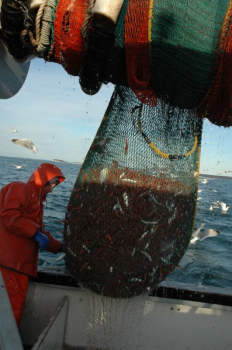
Northern Shrimp: Future not promising for shrimp fishery
The fate of the shrimp fishery for the coming year, if any, will likely be determined Friday afternoon when the Northern Shrimp Section of the Atlantic States Marine Fisheries Commission meets to review the 2019 Stock Assessment Update Report and updates from the section’s Summer Survey Work Group and the Northern Shrimp 2019 Summer Survey Results. The meeting will be held by telephone and interested parties may listen to the proceedings by joining in the conference call or by signing in to a “webinar” on the internet. >click to read< 09:29

EDITORIAL: Menhaden harvest limit actually means something
Last week, the Atlantic States Marine Fisheries Commission, the partnership, or “interstate compact,” that sets harvest limits for 27 fisheries up and down the Atlantic Coast, officially accused Virginia of allowing Omega Protein to overfish,,, In a December 2017 press release on the deal, Cooke hinted at a new use: “The animal feed ingredients produced by Omega Protein are an important component in Cooke Aquaculture’s production of healthy Atlantic salmon, making this acquisition a strategic move that greatly enhances Cooke’s vertical integration.” So instead of rockfish, maybe the Bay’s menhaden will be feeding farm-raised salmon in Canada. >click to read< 09:15
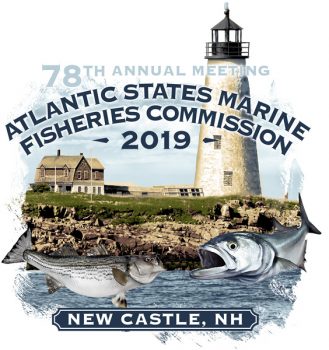
Atlantic States Marine Fisheries Commission 78th Annual Meeting in New Castle, NH. October 28 thru 31, 2019
The agenda is subject to change. The agenda reflects the current estimate of time required for scheduled Board meetings. The Commission may adjust this agenda in accordance with the actual duration of Board meetings. Interested parties should anticipate Boards starting earlier or later than indicated herein. >click to read the agenda< Board meeting proceedings will be broadcast daily via webinar beginning Monday, October 28th at 8:30 a.m. and continuing daily until the conclusion of the meeting (expected to be 12:15 p.m.) on Thursday, October 31st. >click here for webinar access< 17:19
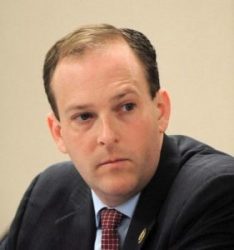
Fishermen brace for cuts to striped bass fishing
East End fishermen are speaking out against proposed cuts that could reduce the harvest of striped bass,,, The Atlantic States Marine Fisheries Commission, which regulates fishing in coastal states from Maine to North Carolina,,, Commercial fishermen must adhere to strict limits on striped bass. Capt. Mark Phillips of the Illusion in Greenport, for example, was issued tags for 219 stripers this year, according to his wife, Mary Bess.,,, Congressman Lee Zeldin (R-Shirley) is an outspoken critic of the proposed cuts. >click to read< 08:42
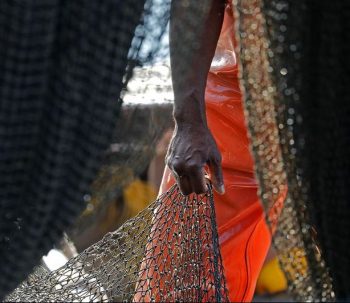
A trip with the lone company chasing menhaden in a 140-year tradition on the Chesapeake Bay
It’s an industry that once made the village of Reedville one of the most prosperous in the state — big, brightly-painted three-story Victorian mansions, bedecked with gingerbread woodwork under their generous shade trees line Main Street in testimony to those long gone days. These days, menhaden are at the center of an obscure, if fiercely fought, political battle over who should catch them where, and whether the Omega Proteins fleet that still sails from Reedville is harvesting too many from the Bay. Among the reasons for that concern: Menhaden are an important food source for striped bass. Photo’s >click to read< 07:54
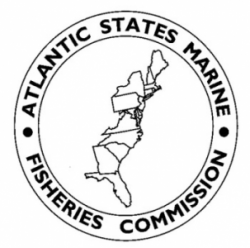
Catch Shares? NOAA Seeks Comments on a Control Date for the American Lobster Fishery
NOAA is seeking comments on a control date (a date that may be used to establish eligibility) of April 29, 2019 for the American lobster fishery, as we consider ways to reduce threats of entanglement by fixed-gear fisheries to North Atlantic right whales.,,, Following the TRT meeting the Atlantic States Marine Fisheries Commission’s Lobster Management Board established a control date of April 29, 2019, and recommended that NOAA Fisheries do the same for federal waters. We are notifying the public that we may develop a future rulemaking to complement any actions taken by the Commission, and that future participation in the fishery may be based on participation as of April 29, 2019. >click to read< 10:39

Striped bass are underfed, not overfished
Atlantic States Marine Fisheries Commission, or ASMFC, has determined (again!) that the number of spawning Atlantic striped bass is below the required threshold to maintain proper “recruitment” (newborns), and therefore, sustainable population abundance.,, Certainly, there is a lot of blame to go around, but the ASMFC seems to have only one conclusion: overfishing.,,, What about food?,,, This may be a shocking finding, but foreign-owned Cooke Inc., the owner of Omega Protein, “purse seins” hundreds of millions of pounds of menhaden a year,,, by Bev Landstreet >click to read< 09:36

ASMFC: New England/Mid Atlantic – Lobster Trap Transfer Program for Fishing Year 2020
We are considering future changes to the federal lobster regulations as recommended by the Atlantic States Marine Fisheries Commission. These changes include the use of a control date to limit the number of traps or lobster permits a federal permit holder can have in Areas 2 and 3. Any new measures could impact your trap allocations as early as fishing year 2021. We are also discussing potential measures that would minimize threats to North Atlantic right whales. You should stay informed of potential changes, and know that you transfer traps at your own risk and subject to these new potential regulations. >click to read< 10:14

Fight Against Atlantic Menhaden Certification Moves to Next Round
The objections raised by sportfishing groups in opposition to certification of the industrial Atlantic menhaden fishery as a “sustainable fishery” are scheduled to be heard by an independent adjudicator on July 8 and 9. In March, the Theodore Roosevelt Conservation Partnership (TRCP), Coastal Conservation Association (CCA) and American Sportfishing Association (ASA) filed an objection—which was later combined with a similar objection raised by The Nature Conservancy and Chesapeake Bay Foundation—to the Marine Stewardship Council’s (MSC) recommendation that Omega Protein should receive a certification of sustainability for its U.S. Atlantic menhaden purse-seining operations. >click to read<13:53
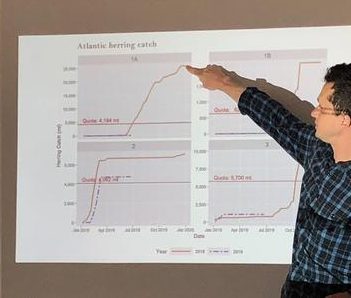
With herring shortage, lobster industry looks to other bait sources
The care and feeding of lobsters in the face of a bait crisis was the focus of a presentation at Maine Center for Coastal Fisheries ,,, With a shortage in herring, most lobstermen’s first choice to bait lobster traps, the industry is looking for solutions. “No bait is a big problem for a state that depends so much on lobster,” Stoll said. With about $60 million in ex-vessel landings value at the Stonington port in 2018, the commercial lobster industry supports thousands of local jobs, he noted. “Lobster is currently the most valuable fishery in the U.S., and 80 percent comes from Stonington.” >click to read< 10:58
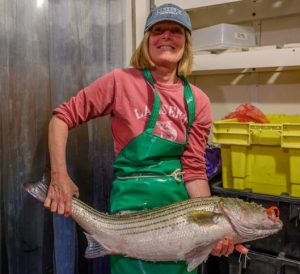
Commercial Striped Bass Season Opens, Amid Concerns About Fishery
By the end of the day Monday, the first day of the commercial striped bass season, the Menemsha Fish House had brought in 297 filleted pounds of the elusive — and profitable — fish. Otto Osmers, a commercial fisherman and fishmonger at the Fish House, said it was an about average commercial day in terms of pounds of fish landed. And he acknowledged that the season begins amid concern among fishermen and regulators over declining stocks. >click to read<10:05
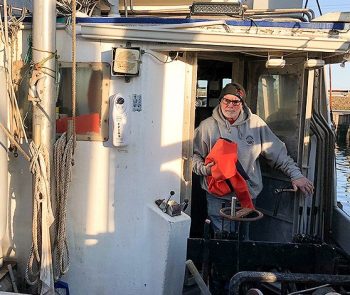
Warming waters spark marine migration, fish wars
The warming waters associated with climate change are creating big ripple effects across fishing communities, including in this picturesque seaside town with a long fishing history. Take Joel Hovanesian, who last fall docked his 40-foot trawler at the Port of Galilee, calling it quits after a 42-year career of chasing fish.,,, Up and down the Atlantic coast, commercial fishermen are heading for the exits these days, irked by government rules and regulations that they say haven’t kept pace with the changes. Fishermen have long battled over fish allocations, but the fights have become more intense and complicated due to climate change. As more fish head north in search of cooler waters, fishermen complain that quotas have not kept pace with shifting stocks, making it harder for them to make a living and bring fish to market. >click to read<15:46

Rep. Zeldin Blasts NY’s ASMFC Delegates for Failure to Deliver for NY Fishermen
Today, Congressman Lee Zeldin (R, NY-1) blasted New York’s delegates to the Atlantic States Marine Fisheries Commission (ASMFC) following the conclusion of this month’s spring meeting, during which no progress was made in rectifying New York’s already inequitable quotas for species across the board, including Black Sea Bass, Striped Bass and Fluke. >click to read<19:10
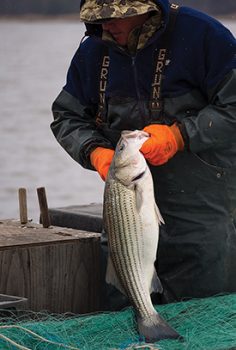
ASMFC says rockfish harvests need to be cut 17 percent
East Coast fishery managers last week took the first steps toward cutting the striped bass harvest 17 percent next year to help end overfishing of the popular species, which has been in decline for years. Options about how the harvest should be reduced will be presented to the Atlantic States Marine Fisheries Commission at its August meeting, after which proposals would go out for public comment. Final measures could be approved in October.,,, The issue of such “dead discards” — fish that die after being released by anglers — has gained more attention from fishery managers because the new assessment found,,, >click to read<08:45
Gerald Almy: Virginia’s trophy saltwater striped bass season canceled – >click to read<09:19
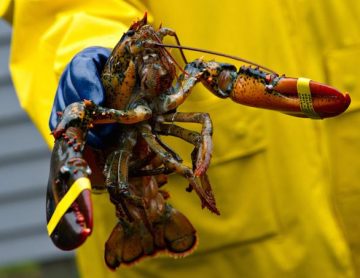
Daunting task begins: Reducing lobster gear to save whales
The interstate Atlantic States Marine Fisheries Commission met Monday outside Washington to discuss the implementation of the new rules, which are designed to reduce serious injuries and deaths among whales by 60 percent.,,, The interstate Atlantic States Marine Fisheries Commission met Monday outside Washington to discuss the implementation of the new rules,,,, Colleen Coogan, who coordinates the federal government team designed to protect the whales, said during the meeting that cooperating with Canadian authorities is also going to be very important. “We’ve set a pretty high bar,” Coogan said. “They’re going to have to show that their measures provide similar protections to right whales.” >click to read<08:58

Our view: Abundant menhaden draw whales and endless dispute over its fishery
A sustainable and growing menhaden fishery, though, isn’t enough for some. Since at least 1888, when the Rod and Reel Association claimed commercial menhaden boats were taking fish better left as food for species they liked to catch and eat, people have fought over the best use for menhaden. In the fall of 2017, a coalition of environmental and sport fishing interests, partly led by a unit of the Pew Charitable Trusts, successfully lobbied the fisheries commission to switch to a unique new management approach for a fishery, one based on estimates of how the menhaden population affects other fish and wildlife that prey upon it. >click to read<10:42
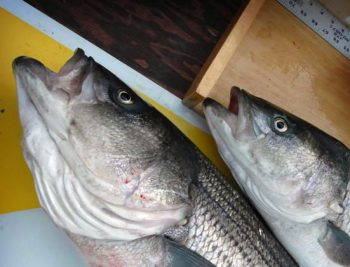
Maryland overfishing imperils rockfish population – Recreational anglers are largely responsible
“The recent stock assessment shows that early action is needed to slow the decline and restore this fishery to sustainable levels,” Virginia Marine Resources Commissioner Steven G. Bowman said in a statement.,,, Recreational anglers are largely responsible. Since 2008, they have killed eight times more striped bass than commercial fishermen, with Maryland anglers harvesting a huge haul: nearly three times the number of fish taken by Maine, New Hampshire, Rhode Island, Connecticut, Delaware and North Carolina — combined. >click to read<14:49
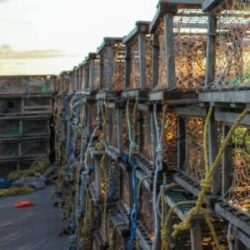
UNACCEPTABLE – Strict right whale protection goal raises concerns among lobstermen
Patrick Keliher, head of the Maine Department of Marine Resources, announced the proposed target at a conference of U.S. and Canadian lobstermen in Portland Friday while defending a decision to cancel three meetings with Maine fishermen to talk about looming right whale protections.,,, The National Marine Fisheries Service estimates that fishing rope entanglement kills or seriously injures five to nine right whales a year,… A few minutes later, Keliher got an email from the fisheries service that spelled out its risk reduction target. Frustrated, he stood up and delivered apparent bad news – he told an already exasperated audience that the service now wanted a 60 percent to 80 percent reduction in the size of the lobster fishery. The room erupted with anger. >click to read<22:49
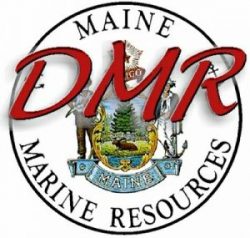
Maine cancels right whale meetings with lobster industry
The state Department of Marine Resources is canceling a series of meetings with the lobster industry next week to talk about right whale protections, saying it has nothing new to present to lobstermen until federal officials clearly identify a risk reduction target. The National Marine Fisheries Service, which is tasked with protecting right whales from entanglement in lobster fishing gear, is introducing new scientific methodologies and analyses that could cause large-scale changes to the lobster industry, Commissioner Patrick Keliher said. >click to read<11:11






